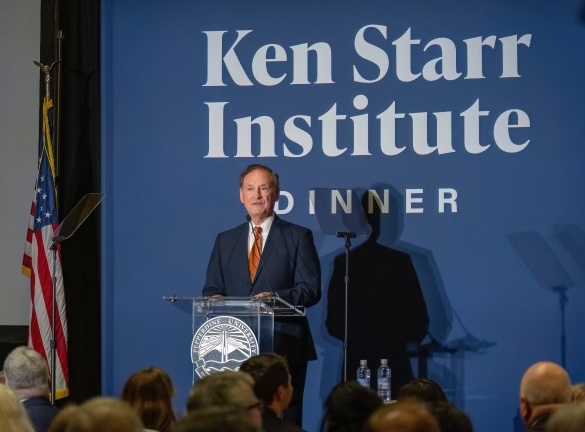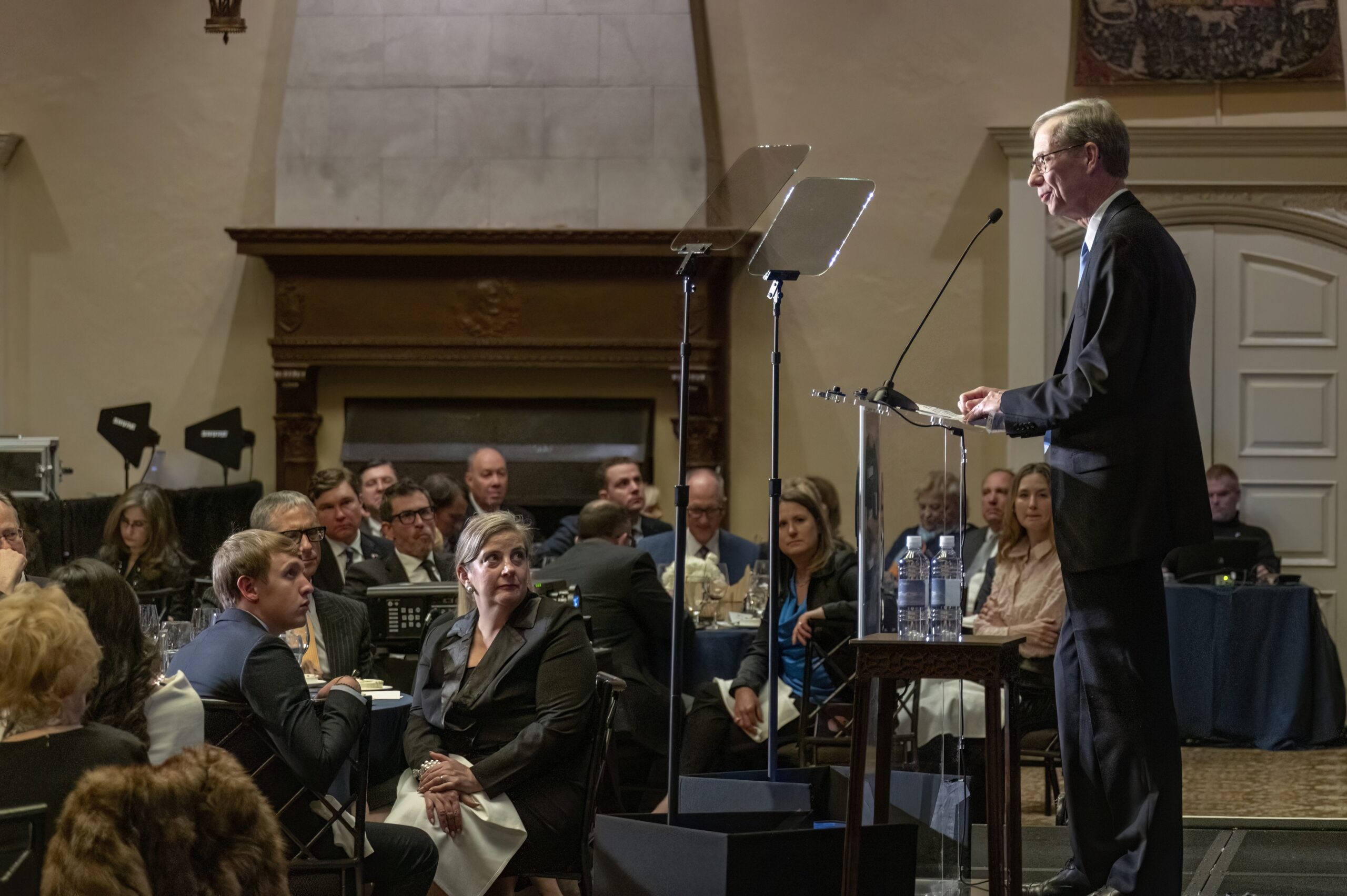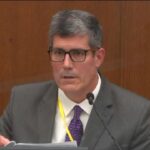
Supreme Court Justice Samuel Alito believes the everlasting legacy of the United States is the “mutual respect” of diverse religious viewpoints, according to his keynote speech for the launch of Pepperdine University’s Ken Starr Institute for Faith, Law, and Public Service last week.
Alito’s speech was in reflection on the late Ken Starr, solicitor general for former president George W. Bush who also served as independent counsel from 1994 to 1998 in the investigation that led to former President Bill Clinton‘s impeachment. Starr was a dean at Pepperdine Caruso School of Law in Malibu, California, from 2004 to 2010, and the college announced its novel institute that bears his name at a private-ticketed event at the Congressional Country Club in Bethesda, Maryland, on March 4.

Standing before a crowd of more than 250 attendees at the dinner event, Alito said he often considers what historians will think of the United States “hundreds and hundreds of years from now.”
“I hope that one thing they will say if they are asked ‘how did the United States contribute to the development of civilization’ is this: The United States of America taught the world that it is possible for a religiously diverse population to live together amicably, harmoniously, and productively with mutual respect,” said Alito, an appointee of Bush.
“I am sure that was Ken Starr’s vision for the country he loved and served,” Alito said of Starr, who died in September 2022 at the age of 76 after complications from surgery. “And I am sure we all hope and trust that the institute at Pepperdine that bears his name will, among other things, work toward that end.”

A core focus of the Ken Starr Institute, which is conducting a nationwide search for the chair of the program, is to “contribute to viewpoint diversity by promoting scholarship related to originalism and textualism.”
“A key component of the institute will be high-profile endowed chairs focused on the exploration of legal thought in the three vital areas of faith, law, and public service,” to help students obtain careers of “leadership and strength” for future congressional officers, judicial clerkships, district attorneys, and other government roles, according to a press release from Pepperdine obtained by the Washington Examiner.
The institute also plans to hold conferences “on religious liberty and law and religion” at the University’s Washington, D.C., campus, and the Chateau d’Hauteville, the college’s latest international campus in Switzerland, that will “bring together scholars and practitioners with the goal of influencing public debates on the relationship of faith and law,” the release added.
Alito’s remarks at the country club event came just three nights before President Joe Biden’s State of the Union address in Washington, D.C., at which six of the nine justices, including Chief Justices John Roberts, followed by Justices Neil Gorsuch, Brett Kavanaugh, Elena Kagan, Sonia Sotomayor, and Ketanji Brown Jackson, were in attendance. Justices Amy Coney Barrett, Clarence Thomas, and Alito were not in the chamber this year.
Alito, who has called himself a “practical originalist” and has written notable opinions dedicated to protections under the First Amendment, has often spoken on the importance of upholding religious freedoms during speeches at collegiate institutions.
CLICK HERE TO READ MORE FROM THE WASHINGTON EXAMINER
The justice notably delivered a speech at the Notre Dame Religious Liberty Summit in Rome in July 2022, shortly after a monumental term that saw the justices overturn Roe v. Wade, uphold religious freedoms for a praying football coach, and strengthen Second Amendment freedoms, among a number of pivotal cases during the fall 2021-2022 term.
“Religious liberty is fragile, and religious intolerance and persecution have been recurring features of human history,” Alito said at the time.







